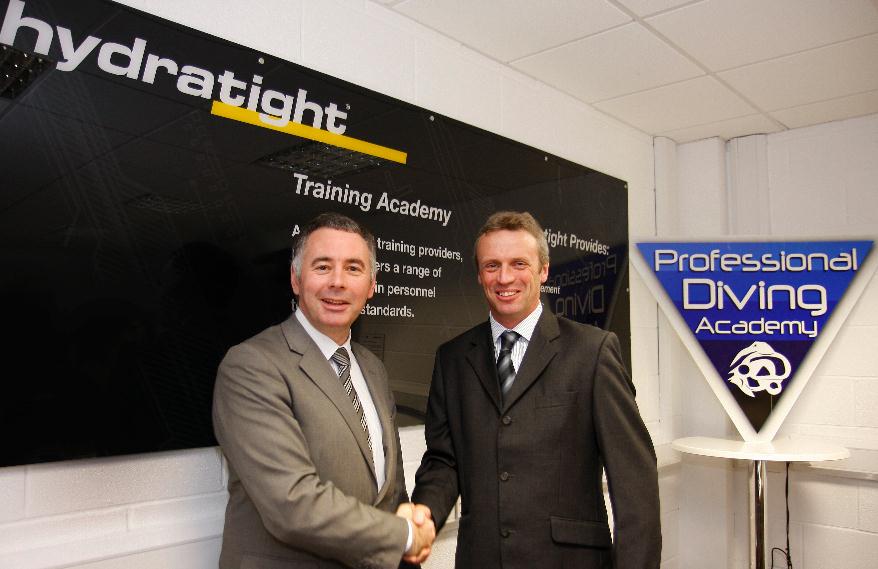Subsea Hydratight Equipment Training

Hydratight and the Professional Diving Academy will collaborate on specialist courses aimed at improving both subsea joint integrity and skills, as well as diver safety. The partnership aims to fill a gap in the current training provision for industrial divers, initially offering a course on the subsea use of bolting tools with extensive underwater practical tuition – the only course of its kind in the world. Currently the biggest problem for divers is that much of their formal training in the use of subsea bolting and jointing equipment has to take place on dry land, or more commonly during a sometimes disjointed training regime conducted by experienced divers, often while a contract is running. “There simply hasn’t been anywhere for divers to learn how to operate specialist tools underwater from experts – and these aren’t skills that should be learned on the job,” said Hydratight’s global competency leader, Jason Barnard. “When bolt tensioners, torque wrenches and other powered equipment is taken underwater, everything changes: weight, handling, the forces employed, the time taken and many more critical factors, are all different. “Generally, engineers don’t go underwater because they aren’t divers; divers don’t know the best uses of the equipment because they aren’t experts in the procedures and tools. “We aim to bridge that gap by offering specialist training where it should be delivered – both in the classroom and underwater in realistic conditions, including highly-restricted visibility.” The PDA offers Health and Safety Executive (HSE) and Scottish Qualifications Authority (SQA), accredited commercial diver construction and inspection training for delegates around the world. The organisation has a well-established reputation for delivering highly-advanced courses. It recognised and responded to a critical gap in specialised subsea training and found Hydratight, with its renowned expertise and commitment to technician training, an ideal strategic partner. “With several high-profile leaks from offshore oil and gas flow lines making international headlines recently, we feel that divers should have a mechanism that allows them to train on this highly specialist equipment and associated procedures in the proper working environment,” said PDA’s training manager Neil MacMillan. Both organisations anticipate that courses will be available in early 2012 run by Hydratight and PDA experts at the academy’s extensive wet and dry training facilities in Dunoon, Scotland and through a strategic network of training facilities worldwide.
